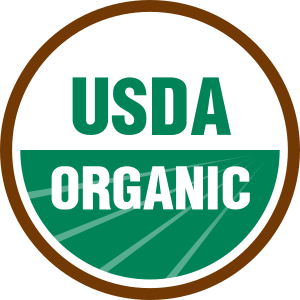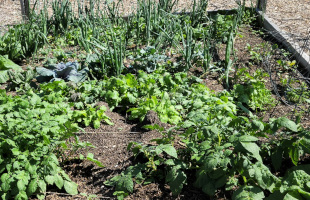
Organic gardening, at its simplest, is gardening using only substances occurring in nature. No synthetic compounds are allowed. This means pesticides and fertilizers must be made of naturally occurring substances. Of course, it isn’t that simple. As usual, the devil is in the details.
Natural Is Not Always Safe
Many people mistakenly think that if something is naturally occurring, it is safe. Just because it is natural does not make it safe to consume. Arsenic, cyanide, and nicotine are naturally occurring substances, but are so toxic that they are banned in organic gardening. Pesticide safety is still important.
Who Writes The Standards
That leads to the question of who decides what is organic. In the United States, the United States Department of Agriculture (USDA) was charged with deciding on what was organic and what was not. This organic certification is relatively recent and the rules were hotly debated. Farmers that had been practicing organic farming in a very strict fashion wanted that standard used. Big box retailers wanted fairly relaxed rules so they could easily get certified organic food and make more money. In the end, a compromise was reached that pleased no one but was somewhere in the middle.
Sewage Sludge?
One of the major areas of contention involved the use of sewage sludge as fertilizer. This is the stuff left over when the water is drained at the waste treatment plant. Theoretically, it has been treated and is just organic matter ready to be used as fertilizer, just like compost. However, there is a concern that heavy metals and other toxic substances may be in it. Then there is the yuck factor –most of it is composted human waste. The USDA allows organic farmers to use it. Oregon Tilth and other strict organic certification organizations prohibit it. I am with them on this one!
Other Certification Agencies
Up until the government stepped in, the major certification source was Oregon Tilth. They are very strict and it is expensive to get that certification. This is because they actually come and inspect each prospective place and have strict record-keeping and audit requirements. If they have certified something, there is no doubt in anyone’s mind it is organic.
Certification Is Expensive
Getting certified by the USDA is expensive, too. Because of this, many small farmers who follow organic practices just can’t afford to be certified. However, there is now a cost-share program where if you are certified, the government will rebate 75% of the cost, up to $750. In addition, if you follow the same organic practices as a certified farm but make less than $5,000 a year from your products, you may say that your products are organically produced.
Must Keep Excellent Records
To be certified organic you must not have used synthetic substances on your land for at least three years. You must keep records of everything you put on your garden or farm. These records are subject to an audit at any time. Certificates do get pulled so audits are occurring.
Lists Of Banned Substances
There is a list of banned substances and as I mentioned, there are some naturally occurring things on it. If you are interested in organic gardening, it is worth going to both Oregon Tilth and the USDA and reading the lists of banned substances, the required practices, and the record-keeping requirements.
Organic gardening is more work than conventional gardening. If done correctly, however, it provides healthy, delicious fruits and vegetables for your table. Only you can decide if the work is worth the effort.

Want to learn to garden? My first attempt at gardening ended up in failure. The weeds took over and squeezed the vegetables out. I was very frustrated by this waste of good seed, time, and money. So I became a master gardener and spent a lot of time helping other people avoid or overcome problems in their garden.
In order to help others garden successfully, I have written a book, Vegetable Gardening from the Ground Up, available in an ebook or a paperback from Amazon. It is also in Kindle Unlimited.


Thanks for this really informative article. I will bookmark and use as reference when I am sourcing my lavender products. You are a great researcher. I enjoy visiting and reading your posts. Other than the lovely lavender; I want to eventually blog on all things organic as I am convinced this is the way to go. Thanks for mentioning my site too Stephanie.
Glad you liked the article, Patricia. I wrote it in response to your comment on finding local organic sources for your clients in other countries. I do not know about most countries, but do know about the United States.
StephanieSuesan: This is a delightful site – easy to read, with excellent information. Found you by reading Patricia@lavenderuses.
We have to be skeptical of ‘eco’ and ‘organic’ labels and know who are the good ones.
In our business centre we house a wonderful group of individuals who promote recycling and worm-farms to urban households in Western Australia. Posters of bugs and worms in the reception remind us of what is real. Thanks. Julia
Nice to meet you. Yes, we must be skeptical of “green”, “eco” and “organic” labels. Even if certified “organic” by a government entity, we need to be aware that some government entities are more likely to be bribed than others. China immediately comes to mind on that. Here “natural” is a big selling point on labels. One of the cruder people I know says that cow manure is “natural” but she isn’t going to eat it!